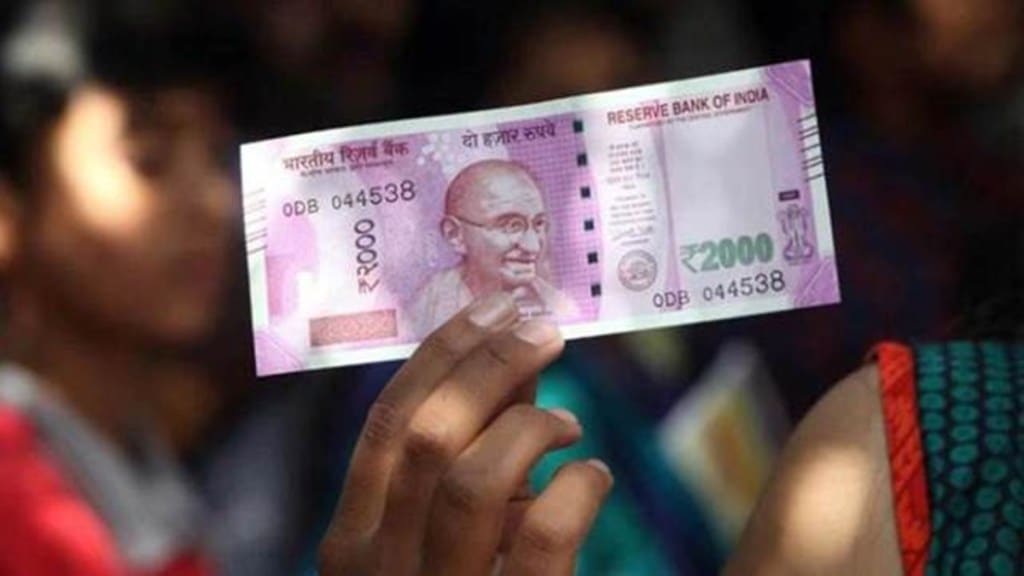The Reserve Bank of India (RBI)’s recent move to withdraw Rs 2,000 notes from circulation has led to a rise in term deposits, a report by the research team of State Bank of India (SBI) showed.
According to the report, total deposits of Rs 3.3 trillion were added in the fortnight ended June 2. Of this, 81% was term deposits. In comparison, the average increase in deposits during the same fortnight in the last two years was around Rs 1.5 trillion.
As much as 30% of these deposits will likely be utilised for loan payment.
Also read: SBI chief: See huge opportunity to collaborate with fintechs
“Interestingly, despite repayments getting front-loaded, credit growth continues to remain quite strong,” the report said.
“The inflow of deposits would have got distributed across the banking system. This, in itself, would not drive down net interest margins for any single bank,” Aashay Choksey, vice president and sector head, ICRA, said.
“Margin compression would largely be driven by the existing term deposit base that would get re-priced in the coming two-to-three quarters.”
In addition to term deposits, current account savings account (CASA) deposits are also expected to increase by Rs 1.5 trillion as a result of the note withdrawal.
The SBI report contends that consumption demand will likely be front-loaded by Rs 55,000 as a result of the withdrawal of the high-value note.
“The ‘precision strike’ by the RBI hits the right notes on multiple counts, taking pressure off substantially from near war-like quest for deposits from banking system while also smoothening the bias for higher interest rates going forward,” the report said. “Additionally, the move effectively anchors the surge in incremental C/D ratio, nearing pre-pandemic levels, by filling the coffers and keeping banks ready to meet funding needs from diverse sectors.”
Bulk deposits are also witnessing traction as bank deposits have become a favourite alternative for corporates due to higher returns and safety.
Also read: Cross-border transactions a priority, says NPCI MD
While the RBI move has boosted liquidity, experts believe the surplus is likely to be short-lived as corporates will withdraw this money to make tax payments.
“Bank deposits growth would tend to slow down with tax payments made by companies and hence the gap between incremental deposits and credit will moderate,” Bank of Baroda chief economist Madan Sabnavis said in a note.
E-Rupi will also benefit as the absence of the high-value note will propel merchants to adopt the former.

